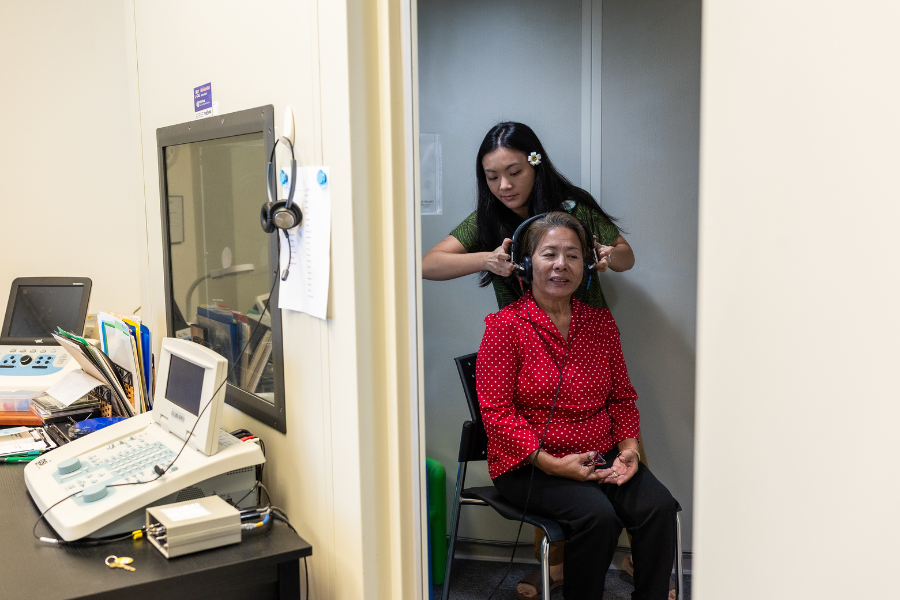
Imagine a kindergartener struggling with a primer sight word and falling behind her peers in acquiring reading readiness skills, or an adolescent with memory lapses after suffering from a sport concussion, or an adult who needs to return to work after a stroke but is challenged with executive function tasks, or an older adult with a hearing loss who is withdrawing from social interactions and feeling isolated. Without access to rehabilitation services from a speech-language pathologist and/or audiologist, these individuals will continue to face barriers to enjoying their fundamental right to communicate and participate in daily activities.
Speech-Language Pathologists (SLPs) identify, assess, and treat a range of speech, language, cognitive-communication, and swallowing disorders, including:
- Articulation, fluency (e.g., stuttering), and voice disorders
- Receptive and expressive language disorders, including difficulties with spoken and written language, as well as social/pragmatic communication
- Cognitive-communication disorders, including those associated with brain injury, stroke, or dementia
- Pediatric and adult feeding and swallowing disorders
SLPs work with individuals across the lifespan to promote meaningful participation in daily activities, support success in school and work settings, and enhance overall quality of life. Their work includes:
- Helping toddlers and preschoolers develop early speech and language skills
- Supporting children with autism in using speech-generating devices to communicate
- Teaching students with language and literacy challenges to build essential academic skills
- Helping adults with attention, memory, and executive functioning difficulties in managing daily tasks and responsibilities
- Supporting older adults with mild cognitive impairment or dementia to maintain their independence to the fullest extent as is feasible and reduce caregiver burden
- Addressing feeding and swallowing issues in individuals of all ages to ensure safe and adequate nutrition
Audiologists evaluate, diagnose, and treat hearing loss—recognized as the third most common chronic health condition in the United States, affecting nearly two-thirds of adults over the age of 70. Healthy hearing is essential to upholding every individual's right to communicate.
In infants and children, early identification and intervention help prevent speech and language delays and reduce the risk of academic challenges. Among older adults, research shows that greater degrees of hearing loss are associated with increased risk of dementia. However, the use of hearing aids may help mitigate this risk and support cognitive health.
Hawaiʻi's required need of speech-language pathologists (SLPs) is 830 to serve its population of approximately 1.4 million. In December 2022, only 465 SLPs were employed in the workforce - representing a shortage of over 44%. This crisis is expected to worsen, with the U.S. Bureau of Labor Statistics projecting a 24% increase in demand for SLPs in Hawaiʻi from 2020 to 2030.
The University of Hawaiʻi's Department of Communication Sciences & Disorders (CSD), John A. Burns School of Medicine (JABSOM), offers the only graduate program in Hawaiʻi that is accredited by the American Speech-Language-Hearing Association (ASHA) to prepare students with entry level credentials as SLPs. The University Health Partners of Hawaiʻi Speech and Hearing Clinic (UHPSHC) is the faculty practice of JABSOM. Licensed, certified faculty SLPs and audiologists provide clinical services to patients, teach essential knowledge and skills to CSD graduate students, and mentor excellence in patient-centered, evidence-based practice. Volunteer SLPs in education and healthcare settings supervise students in their off-campus practicum to provide valuable learning experiences and inspire them to fulfill ASHA's vision of "Making effective communication, a human right, accessible and achievable for all".
